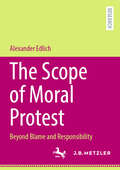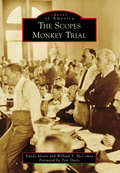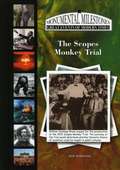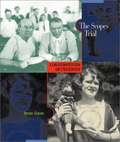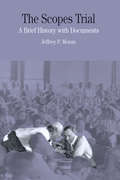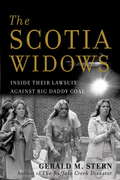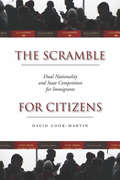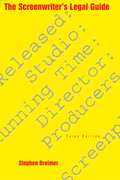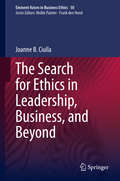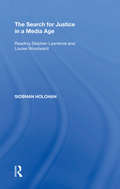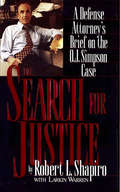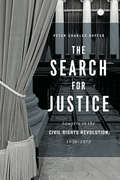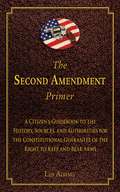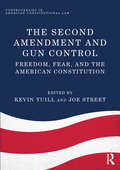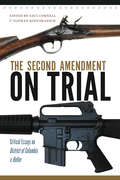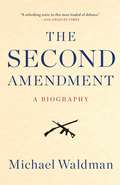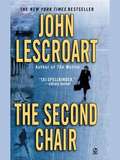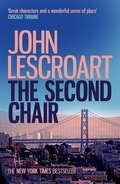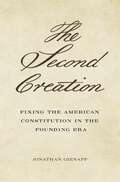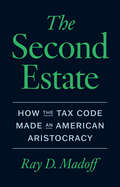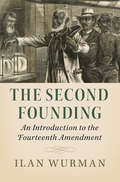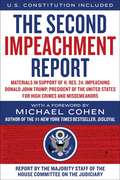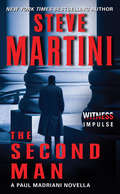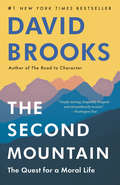- Table View
- List View
The Scope of Moral Protest: Beyond Blame and Responsibility
by Alexander EdlichThe book highlights a neglected aspect of our moral practices: we can morally protest objectionable conduct without blaming agents for it. In this way, moral responses to wrongful conduct are possible without assessing the blameworthiness of agents. The book offers an account of moral protest as a type of stance-taking: in protest, the protester commits themselves to treating what they protest as morally objectionable, which is related to a specific class of moral emotions. The aptness conditions of moral protest and the concept of objectionability are discussed and this perspective is applied to a critical discussion of the attributionist view of blameworthiness and corresponding views of blame. It concludes that our moral practices allow for more variation than is often acknowledged, some of which unrelated to moral responsibility, and that this gives us reason not to insist on a broad view of blameworthiness. Specifically, it is argued that the significance of morally objectionable conduct and the needs of victims of wrongdoing can be done justice to without blame. The book thus suggests that moral protest without blame may be called for more often than we think, including for many types of wrongdoers whose culpability is disputed.
The Scopes Monkey Trial (Images of America)
by Tom Davis Randy Moore William MccomasThe 1925 case against high school coach and science teacher John Scopes, arrested for teaching evolution in defiance of a Tennessee state law, was America's original "Trial of the Century." The proceedings began as a publicity stunt but grew into a landmark event in the nation's history. The trial featured three-time presidential candidate and fundamentalist leader William Jennings Bryan, who argued on behalf of the prosecution, and famed agnostic attorney Clarence Darrow, who helped defend Scopes. Although the Scopes case produced no legal precedent, the trial has been analyzed by historians, praised and vilified by politicians and preachers, cited in countless legal, political, and theological skirmishes, and retold in plays, movies, museum exhibits, and television documentaries. Images of America: The Scopes Monkey Trial examines the events that captured the attention of the world and still have much to teach us today.
The Scopes Monkey Trial (Monumental Milestones: Great Events of Modern Times)
by Jim WhitingOne of the most famous trials in U.S. history took place in a tiny town in Tennessee in 1925. Dayton was the site of what became known as the Scopes Monkey Trial. The defendant, John T. Scopes, was accused of violating a recently passed state law. This law made it illegal to teach the theory of evolution. Under most circumstances, few people would have paid any attention. Several of Dayton's leading citizens saw a chance to put their town on the map. They were successful. Two of the country's most famous people-William Jennings Bryan and Clarence Darrow-soon became involved. Dozens of reporters poured into Dayton from all over the country. It was the first trial to receive live media coverage. Scopes was found guilty. He had to pay a small fine. But the issues about evolution that the trial raised are still debated today.
The Scopes Trial (Cornerstones of Freedom, 2nd Series)
by Renee GravesA description of the historic 1925 trial in which a Tennessee high school biology teacher was accused of violating state law by teaching Darwin's theory of evolution.
The Scopes Trial: A Brief History With Documents (The Bedford Series In History And Culture)
by Jeffrey P. MoranThe Scopes trial shocked America. Tennessee schoolteacher John Scopes brought the question of teaching evolution in schools to every dinner table, and it remains an essential topic in any course on American History, the History of Education, and Religious History. This volume’s lively interpretative introduction provides an analysis of the trial and its impact on the moral fiber of the country and the educational system, and examines the race and gender issues that shook out of the debate. The editor has excerpted the crucial exchanges from the trial transcript itself, and includes these along with reactions to the trial, taken from newspaper reports, letters, and magazine articles. Telling political cartoons and evocative photographs add a colorful dimension to this collection, while a chronology of events, questions for consideration, and a bibliography provide strong pedagogical support.
The Scotia Widows
by Gerald M. SternOn March 9, 1976, a violent explosion, fueled by high concentrations of methane gas and coal dust, ripped through the Scotia mine in the heart of Eastern Kentucky coal country. The blast killed fifteen miners who were working nearly three and a half miles underground; two days later, a second explosion took the lives of eleven rescue workers. For the miners’ surviving family members, the loss of their husbands, fathers, and sons was only the beginning of their nightmare. InThe Scotia Widows, Gerald M. Stern, the groundbreaking litigator and acclaimed author ofThe Buffalo Creek Disaster, recounts the epic four-year legal struggle waged by the widows in the aftermath of the disaster. Stern shares a story of loss, scandal, and perseverance–and the plaintiffs’ fight for justice against the titanic forces of “Big Daddy Coal. ” Confronted at nearly every turn by a hostile judge and the scorched-earth defense of the Scotia mine’s owners, family members also withstood the opprobrium of some of their neighbors, most of whom relied on coal mining for their livelihoods. Meanwhile, Stern, representing the widows of the disaster on contingency, amassed huge bills and encountered a litany of formidable obstacles. The Eastern Kentucky trial judge withheld disclosure of his own personal financial interest in coal mining, and a popular pro-coal former Kentucky governor served as the lead defense counsel. The judge also suppressed as evidence the federal mine study that pointed to numerous safety violations at the Scotia mine: In a rush to produce more coal, necessary ventilation had been short-circuited, miners had not been trained in the use of self-rescue equipment, and ventilation inspections had not been made. Moreover, Scotia did not even have a trained rescue team. Ultimately, the Scotia widows’ ordeal helped to inspire the Federal Mine Safety and Health Act of 1977, which changed safety regulations for coal mines throughout the country. The Scotia Widowsportrays in gripping detail young women deciding to pursue a landmark legal campaign against powerful corporate interests and the judge who protected them. It is a critically important and timeless story of ordinary people who took a stand and refused to give up hope for justice. Praise forThe Scotia Widows: “This is a very scary story, a guided tour of the grinding cogs and spinning wheels inside the machinery of justice. Gerald Stern’s compassionate account of the ordeal of the Scotia widows shows you how horribly out of kilter it can all get when greed and self-interest are at the controls. Only with luck and the expertise of Stern does justice emerge in the end, a bit tarnished but still intact. ” –Jonathan Harr, author ofA Civil Action From the Hardcover edition.
The Scramble for Citizens: Dual Nationality and State Competition for Immigrants
by David Cook-MartinIt is commonly assumed that there is an enduring link between individuals and their countries of citizenship. Plural citizenship is therefore viewed with skepticism, if not outright suspicion. But the effects of widespread global migration belie common assumptions, and the connection between individuals and the countries in which they live cannot always be so easily mapped. InThe Scramble for Citizens, David Cook-Martín analyzes immigration and nationality laws in Argentina, Italy, and Spain since the mid 19th century to reveal the contextual dynamics that have shaped the quality of legal and affective bonds between nation-states and citizens. He shows how the recent erosion of rights and privileges in Argentina has motivated individuals to seek nationality in ancestral homelands, thinking two nationalities would be more valuable than one. This book details the legal and administrative mechanisms at work, describes the patterns of law and practice, and explores the implications for how we understand the very meaning of citizenship
The Screenwriter's Legal Guide: Third Edition
by Stephen BreimerThis authoritative guide will help both fledgling and established writers to negotiate the best deal, protect their work, and get fair compensation for it. One of the most powerful entertainment lawyers in Hollywood provides easy-to-understand, expert advice on all the legal issues involved in the business of screenwriting. He gives an enlightening explanation of the screenwriter's position in the industry and then provides a thorough discussion of contracts, options, and working with agents and lawyers. This book shows screenwriters what to give up as a lost cause and what to hold out for.
The Search for Ethics in Leadership, Business, and Beyond (Issues in Business Ethics #50)
by Joanne B. CiullaThis book brings together a wide range of topics in leadership ethics and business ethics. It approaches these topics from the perspective of the humanities as well as the social sciences. About half of the book is on leadership and the other half on topics in business ethics. Besides these general areas of research, the book explores how to teach and study ethics in both business ethics and leadership studies. Specifically, it examines issues ranging from the nature of ethical leadership, to studies of authenticity, virtue, and the public and private morality of leaders. In business ethics, the subjects covered span from moral imagination, to casuistry, meaningful work, and workplace ethics. The book includes a section on the importance of liberal arts for studying and teaching ethics in business and professional schools. It concludes with a reflection on the ethical challenges of leaders and followers in a world where some leaders have inverted moral values.
The Search for Justice in a Media Age: Reading Stephen Lawrence and Louise Woodward
by Siobhan HolohanWhat can we learn from the legal cases of Stephen Lawrence and Louise Woodward? How do the legal system and the media contribute to a collective understanding of class, nation, race and gender? In this book, Siobhan Holohan explores media representations of law and order in the context of notions of multi-culturalism and victim-centred politics. Two high profile cases - the murder of Stephen Lawrence and the US trial of the British au-pair, Louise Woodward - are examined. Holohan argues that the stories built up around Woodward and Lawrence - the organization of public discourse around a sacrificial figure - have contributed to exclusionary patterns of social order. The book offers a perceptive account of what makes some criminal legal cases prone to scrutiny and spectacle and provides a vivid illustration of the presence of power relations in legal decisions. In conclusion, the author draws on the model of the Macpherson report to propose a more inclusive form of social and legal judgement that takes into account social inequalities.
The Search for Justice: A Defense Attorney's Brief on the O.J. Simpson Case
by Robert L. ShapiroRobert Shapiro offers his views on the famous trial.
The Search for Justice: Lawyers in the Civil Rights Revolution, 1950–1975
by Peter CharlesThe civil rights era was a time of pervasive change in American political and social life. Among the decisive forces driving change were lawyers, who wielded the power of law to resolve competing concepts of order and equality and, in the end, to hold out the promise of a new and better nation. The Search for Justice is a look the role of the lawyers throughout the period, focusing on one of the central issues of the time: school segregation. The most notable participants to address this issue were the public interest lawyers of the NAACP’s Legal Defense Fund, whose counselors brought lawsuits and carried out appeals in state and federal courts over the course of twenty years. But also playing a part in the story were members of the bar who defended Jim Crow laws explicitly or implicitly and, in some cases, also served in state or federal government; lawyers who sat on state and federal benches and heard civil rights cases; and, finally, law professors who analyzed the reasoning of the courts in classrooms and public forums removed from the fray. With rich, copiously researched detail, Hoffer takes readers through the interactions of these groups, setting their activities not only in the context of the civil rights movement but also of their full political and legal legacies, including the growth of corporate private legal practice after World War II and the expansion of the role of law professors in public discourse, particularly with the New Deal. Seeing the civil rights era through the lens of law enables us to understand for the first time the many ways in which lawyers affected the course and outcome of the movement.
The Second Amendment Primer: A Citizen's Guidebook to the History, Sources, and Authorities for the Constitutional Guarantee of the Right to Keep and Bear Arms
by Les AdamsSo much of the debate about the Second Amendment is in scholarly journals and academic papers written by scholars and judges, or directed towards other scholars, law professors, attorneys, and judges. Trying to wade through the extensive footnotes and references to legal cases and historical precedents known only to the academic elite is more than enough to make anyone feel hopeless.With The Second Amendment Primer, Les Adams finally provides an accessible discussion of the Second Amendment. It is a "primer" because it is elementary. Chronologically arranged, it traces the development of the right to keep and bear arms from its birth in ancient Greece to its addition in the U.S. Constitution. Supplemental essays discuss the Second Amendment's interpretation in today's world from the viewpoints of both firearms enthusiasts as well as those who would limit the amendment's purview.Although The Second Amendment Primer is aimed at the average reader, Adams's facts are detailed and well-documented. Reference margin notes, an extensive bibliography, and a comprehensive subject index showcase the author's research and show more curious readers how to continue on their path to understanding exactly what the Second Amendment is saying. Using this "citizen's guide" as a stepping stone, anyone can become a successful scholar of the right to bear arms.
The Second Amendment and Gun Control: Freedom, Fear, and the American Constitution (Controversies in American Constitutional Law)
by Kevin Yuill Joe StreetThe Second Amendment, by far the most controversial amendment to the US Constitution, will soon celebrate its 225th anniversary. Yet, despite the amount of ink spilled over this controversy, the debate continues on into the 21st century. Initially written with a view towards protecting the nascent nation from more powerful enemies and preventing the tyranny experienced during the final years of British rule, the Second Amendment has since become central to discussions about the balance between security and freedom. It features in election contests and informs cultural discussions about race and gender. This book seeks to broaden the discussion. It situates discussion about gun controls within contemporary debates about citizenship, culture, philosophy and foreign policy as well as in the more familiar terrain of politics and history. It features experts on the Constitution as well as chapters discussing the symbolic importance of Annie Oakley, the role of firearms in race, and filmic representations of armed Hispanic girl gangs. It asks about the morality of gun controls and of not imposing them. The collection presents a balanced view between those who favour more gun controls and those who would prefer fewer of them. It is infused with the belief that through honest and open debate the often bitter cultural divide on the Second Amendment can be overcome and real progress made. It contains a diverse range of perspectives including, uniquely, a European perspective on this most American of issues.
The Second Amendment on Trial: Critical Essays on District of Columbia v. Heller
by Saul Cornell Nathan KozuskanichOn the final day of its 2008 term, a sharply divided U.S. Supreme Court issued a 5-to-4 decision striking down the District of Columbia's stringent gun control laws as a violation of the Second Amendment. Reversing almost seventy years of settled precedent, the high court reinterpreted the meaning of the "right of the people to keep and bear arms" to affirm an individual right to own a gun in the home for purposes of self-defense. The landmark ruling not only opened a new chapter in the contentious history of gun rights and gun control but also revealed both the strengths and problems of originalist constitutional theory and jurisprudence. This volume brings together some of the best scholarship on the Heller case, with essays by legal scholars and historians representing a range of ideological viewpoints and applying different interpretive frameworks. Following the editors' introduction, which describes the issues involved and the arguments on each side, the essays are organized into four sections. The first includes two of the most important historical briefs filed in the case, while the second offers different views of the role of originalist theory. Section three presents opposing interpretations of the ruling and its relationship to modern constitutional doctrine. The final section explores historical research post-Heller, including new findings on patterns of gun ownership in colonial and Revolutionary America. In addition to the editors, contributors include Nelson Lund, Joyce Lee Malcolm, Jack Rakove, Reva B. Siegel, Cass R. Sunstein, Kevin M. Sweeney, and J. Harvie Wilkinson III.
The Second Amendment: A Biography
by Michael Waldman<P>By the president of the prestigious Brennan Center for Justice at NYU School of Law, the life story of the most controversial, volatile, misunderstood provision of the Bill of Rights. <P>At a time of renewed debate over guns in America, what does the Second Amendment mean? This book looks at history to provide some surprising, illuminating answers. <P>The Amendment was written to calm public fear that the new national government would crush the state militias made up of all (white) adult men--who were required to own a gun to serve. Waldman recounts the raucous public debate that has surrounded the amendment from its inception to the present. As the country spread to the Western frontier, violence spread too. But through it all, gun control was abundant. <P>In the 20th century, with Prohibition and gangsterism, the first federal control laws were passed. In all four separate times the Supreme Court ruled against a constitutional right to own a gun.The present debate picked up in the 1970s--part of a backlash to the liberal 1960s and a resurgence of libertarianism. A newly radicalized NRA entered the campaign to oppose gun control and elevate the status of an obscure constitutional provision. In 2008, in a case that reached the Court after a focused drive by conservative lawyers, the US Supreme Court ruled for the first time that the Constitution protects an individual right to gun ownership. Famous for his theory of "originalism," Justice Antonin Scalia twisted it in this instance to base his argument on contemporary conditions. <P>In The Second Amendment: A Biography, Michael Waldman shows that our view of the amendment is set, at each stage, not by a pristine constitutional text, but by the push and pull, the rough and tumble of political advocacy and public agitation.
The Second Chair
by John LescroartIn the latest of his acclaimed novels featuring Dismas Hardy, John Lescroart skillfully and subtly weaves together a story of a privileged youth on trial for murder, and an entire city on the brink of panic, taking this popular series to new heights of stylish suspense.
The Second Chair: A courtroom thriller (Dismas Hardy #No. 10)
by John LescroartSan Francisco is a city on the brink of panic...John Lescroart skilfully and subtly weaves together a story of a privileged youth on trial for murder, and an entire city on the brink of panic, taking this popular series to new heights of stylish suspense. Perfect for fans of Lee Child and John Sandford. 'Lescroart plays out clues with the patience and cunning of a master fly fisherman' - Orlando SentinelTo the outside world, it looks like Dismas Hardy is finally on top. A managing partner at his thriving law firm but beneath the surface bravado, Hardy has lost his faith in the law. Now he has a high-profile and challenging case: a seventeen-year-old arrested for the double slaying of his girlfriend and his English teacher. As the case moves swiftly to trial, Hardy can't even turn to his old friend Abe Glitsky for help. San Francisco has been seized by a wave of violence and an embattled Glitsky must somehow stop the criminal upsurge while being hounded by a hostile media. With the city on the verge of panic, Hardy's search for the truth takes him down a perilous path. With very little belief in his young client's innocence, and even less in the legal system, Hardy has to conquer his own demons if he is to clear his client... and save himself.What readers are saying about The Second Chair:'Once again, Lescroart proves he is the master of this genre''The Second Chair is second to none''John Lescroart weaves a tangled web of suspense back and forth with thick intensity'
The Second Creation: Fixing the American Constitution in the Founding Era
by Jonathan GienappAmericans widely believe that the U.S. Constitution was almost wholly created when it was drafted in 1787 and ratified in 1788. Jonathan Gienapp recovers the unknown story of the Constitution’s second creation in the decade after its adoption—a story with explosive implications for current debates over constitutional originalism and interpretation.
The Second Estate: How the Tax Code Made an American Aristocracy
by Ray D. MadoffA revelatory book that lifts the curtain on America’s most consequential public deception: how the rich get richer using tools the government gave them. Amid conflicting narratives about the drivers of wealth and inequality in the United States, one constant hovers in the background: the US tax code. No political force has been more consequential—or more utterly opaque—than the 7,000-page document that details who pays what in American society and government. Most of us have a sense that it’s an unfair system. But does anyone know exactly how it’s unfair? Legal scholar Ray D. Madoff knows. In The Second Estate, she offers an unprecedented look behind the scenes of America’s byzantine system of taxation, laying bare not only its capacity to consolidate wealth but also the mechanisms by which it has created two fundamentally separate American societies: the working Americans who pay and the ultra-rich who benefit. This is not a story of offshore accounts or secret tax havens. In The Second Estate, Madoff shows that the US system itself has, over time, been stripped and reconstituted such that it now offers a series of secret paths, hidden in plain sight, for wealthy people in the know to avoid taxation altogether. Through the strategic avoidance of traditional income, leveraging of investments and debt, and exploitation of rules designed to promote charitable giving, America’s wealthy do more than just pay less than their share; they remove themselves from the tax system entirely. Wealth becomes its own sovereign state, and the living is surprisingly—and maddeningly—cheap.
The Second Formation of Islamic Law
by Guy BurakThe Second Formation of Islamic Law is the first book to deal with the rise of an official school of law in the post-Mongol period. The author explores how the Ottoman dynasty shaped the structure and doctrine of a particular branch within the Hanafi school of law. In addition, the book examines the opposition of various jurists, mostly from the empire's Arab provinces, to this development. By looking at the emergence of the concept of an official school of law, the book seeks to call into question the grand narratives of Islamic legal history that tend to see the nineteenth century as the major rupture. Instead, an argument is formed that some of the supposedly nineteenth-century developments, such as the codification of Islamic law, are rooted in much earlier centuries. In so doing, the book offers a new periodization of Islamic legal history in the eastern Islamic lands.
The Second Founding: An Introduction to the Fourteenth Amendment
by Ilan WurmanIn The Second Founding: An Introduction to the Fourteenth Amendment, Ilan Wurman provides an illuminating introduction to the original meaning of the Fourteenth Amendment's famous provisions 'due process of law,' 'equal protection of the laws,' and the 'privileges' or 'immunities' of citizenship. He begins by exploring the antebellum legal meanings of these concepts, starting from Magna Carta, the Statutes of Edward III, and the Petition of Right to William Blackstone and antebellum state court cases. The book then traces how these concepts solved historical problems confronting framers of the Fourteenth Amendment, including the comity rights of free blacks, private violence and the denial of the protection of the laws, and the notorious abridgment of freedmen's rights in the Black Codes. Wurman makes a compelling case that, if the modern originalist Supreme Court interpreted the Amendment in 'the language of the law,' it would lead to surprising and desirable results today.
The Second Impeachment Report: Materials in Support of H. Res. 24, Impeaching Donald John Trump, President of the United States, for High Crimes and Misdemeanors
by Majority Staff Committee on the JudiciaryWith a foreword by New York Times bestselling author and former confidante of Donald J. Trump, Michael Cohen, the official report of materials supporting the first-ever second impeachment of a President of the United States—complete with US Constitution included. In 2019, Donald Trump became only the third US President to be impeached by the House of Representatives on charges of abuse of power and obstruction of congress. In January 2021, he became the first President in American history to be impeached for a second time. Though no sitting president was ever convicted, will Trump be the first there, too? Still in the midst of the coronavirus pandemic, which the president has also been accused of handling poorly, and an ongoing refusal to concede his loss to rival candidate Joe Biden, Donald Trump is said to have provoked his followers to storm the US Capitol in Washington, DC, resulting in a shocking protest-turned-violent in an effort to stop the official Electoral count in certifying Biden's victory. The unprecedented event led to the deaths of at least five people, as well as the President being banned from all major social media, including Twitter, Facebook, Instagram, and more, due to risk of inciting more violence. This groundbreaking report—released by the House Judiciary Committee, chaired by Jerrold Nadler—covers Trump's conduct leading up to January 6, 2021, the attack on the capitol, his response to the insurrection, and provides a compelling argument as to why there is an immediate need to consider impeachment despite Trump having only seven days left in office.
The Second Man
by Steve MartiniNavy SEALs are the military's elite--highly trained, deadly, and sworn to secrecy about the details of their dangerous and confidential missions. So when one of the men goes public about a high-profile assassination abroad, all of his comrades are thrown into peril.In this riveting novella, attorney Paul Madriani comes to the aid of a Navy SEAL who is pursued by his own government and facing possible prosecution for disclosures he says were made by others. When the soldier disappears, Paul finds himself ensnared in a deadly game of intrigue that forces him to track the man down before it is too late.
The Second Mountain: The Quest for a Moral Life
by David BrooksEverybody tells you to live for a cause larger than yourself, but how exactly do you do it? The bestselling author of The Road to Character explores what it takes to lead a meaningful life in a self-centered world. Every so often, you meet people who radiate joy—who seem to know why they were put on this earth, who glow with a kind of inner light. <P><P>Life, for these people, has often followed what we might think of as a two-mountain shape. They get out of school, they start a career, and they begin climbing the mountain they thought they were meant to climb. <P><P>Their goals on this first mountain are the ones our culture endorses: to be a success, to make your mark, to experience personal happiness. But when they get to the top of that mountain, something happens. They look around and find the view . . . unsatisfying. They realize: This wasn’t my mountain after all. There’s another, bigger mountain out there that is actually my mountain. <P><P>And so they embark on a new journey. On the second mountain, life moves from self-centered to other-centered. They want the things that are truly worth wanting, not the things other people tell them to want. They embrace a life of interdependence, not independence. They surrender to a life of commitment. <P><P> In The Second Mountain, David Brooks explores the four commitments that define a life of meaning and purpose: to a spouse and family, to a vocation, to a philosophy or faith, and to a community. Our personal fulfillment depends on how well we choose and execute these commitments. <P><P>Brooks looks at a range of people who have lived joyous, committed lives, and who have embraced the necessity and beauty of dependence. He gathers their wisdom on how to choose a partner, how to pick a vocation, how to live out a philosophy, and how we can begin to integrate our commitments into one overriding purpose. In short, this book is meant to help us all lead more meaningful lives. <P><P>But it’s also a provocative social commentary. We live in a society, Brooks argues, that celebrates freedom, that tells us to be true to ourselves, at the expense of surrendering to a cause, rooting ourselves in a neighborhood, binding ourselves to others by social solidarity and love. <P><P>We have taken individualism to the extreme—and in the process we have torn the social fabric in a thousand different ways. The path to repair is through making deeper commitments. In The Second Mountain, Brooks shows what can happen when we put commitment-making at the center of our lives. <P><b>A New York Times Bestseller</b>
